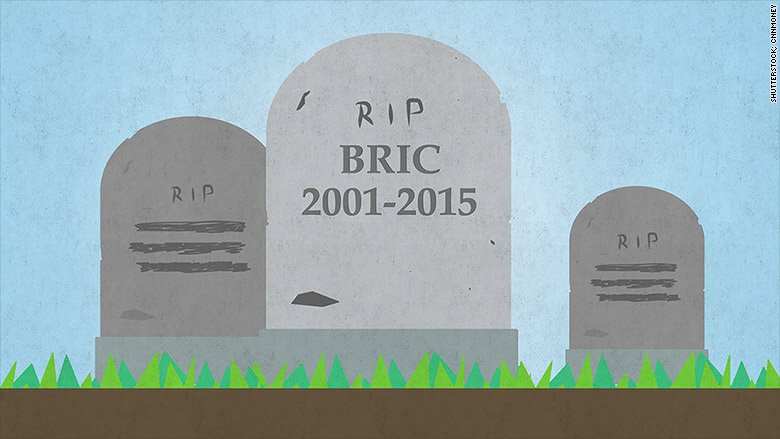Goldman Sachs Ends BRIC Investing as Emerging Markets Shift

BRIC investing has officially fallen out of favor.
Goldman Sachs has officially closed its BRIC fund, concluding that the once-promising investment in Brazil, Russia, India, and China will not see “significant asset growth in the foreseeable future.”
The Rise and Fall of BRIC
The investment giant originally championed the BRIC concept, with former chairman Jim O’Neill coining the term in 2001. The idea highlighted the growth potential of these emerging markets, bringing global attention to the investment opportunities in Brazil, Russia, India, and China. The acronym later expanded to include South Africa, transforming BRIC into BRICS.
However, the initial promise of BRIC countries has diminished over time. Brazil’s economy has faced severe downturns, Russia continues to grapple with low oil prices and international sanctions, and China’s explosive economic growth has significantly slowed down. These factors contributed to the fading appeal of BRIC nations for investors.
Goldman Sachs BRIC Fund Performance
Launched in June 2006, the BRIC fund experienced extreme volatility during the global financial crisis of 2008 and 2009. Despite its initial promise, the fund delivered only a 3% average annual return, significantly underperforming compared to the MSCI BRIC index.
By September, Goldman Sachs announced its plan to fold the BRIC fund into a broader emerging market fund. This change took effect on October 23, marking the end of an era for the BRIC investment strategy.

The Future of Emerging Markets
While Goldman Sachs has closed the chapter on BRIC investing, it doesn’t mean the firm is turning its back on all emerging markets. According to Andrew Williams, a Goldman Sachs spokesman, “Emerging market investing has evolved over the last decade from being tactical and opportunistic to becoming a strategic element of most asset allocations.” He emphasized that the firm still encourages clients to maintain exposure to emerging markets across various asset classes as part of a well-rounded portfolio.
Do BRICS Still Matter?
A report from the Center for Strategic and International Studies (CSIS) raises questions about the relevance of the BRICS concept today. The report suggests that the BRICS’ foundation is starting to crumble, citing economic challenges and political, social, and cultural differences among member nations. Despite their economic might, these countries have struggled to translate their economic strength into cohesive political power on the global stage.
With diminishing economic prospects, the idea of BRICS as a political force seems increasingly fragile, and its future remains uncertain.





